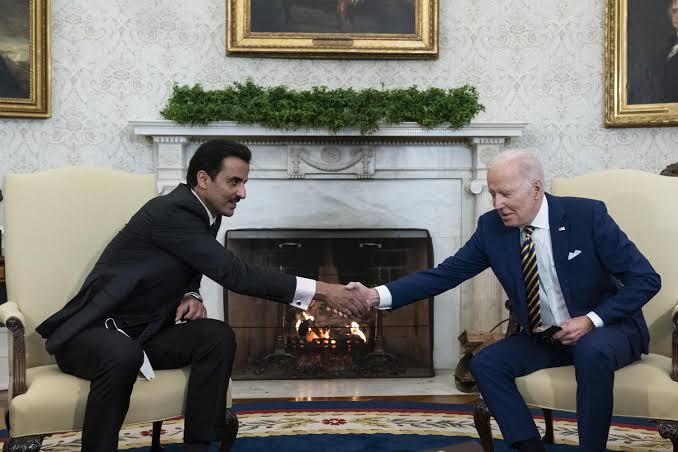Bidden and his Administration continue to Pak ‘NON-NATO ALLY’

Pakistan military and intelligence officers who have “American blood on their hands” from the war in Afghanistan continue to roam free. Islamabad even sheltered Al Qaeda leader Osama bin Laden and would have continued to do so had the US administration informed them of its intelligence information about his presence in Abbottabad.
Pakistani authorities only arrested low-level operatives amid international outrage and pressure after the Mumbai terror attacks in 2008. As international attention turned elsewhere, Pakistan’s government halted the trials and cooperation with international law enforcement.
However, Pakistan at no point started taking action against the senior Lashkar-e-Taiba leaders who planned the terror attacks in India and other countries. As per the news report, Pakistan still continues to shelter terrorists involved in the Mumbai attacks.
Pakistan also continues to sponsor “Khalistan” in Punjab, the United States and Canada, in order to destabilize India. The United States still continues to consider Pakistan a non-NATO ally despite Pakistan providing shelter to terrorists.
A report has called the Biden administration’s efforts to provide F-16 upgrade kits to Pakistan and receive senior Pakistani officers with full honours “bizarre.” Pakistan allowed China to access the stealth helicopter US Navy SEALs used during the Osama Bin Laden operation.
It is not the only time that Pakistan has permitted Chinese military engineers to see US military technology. The report called Pakistan China’s closest ally after North Korea, as per the news report.
Despite all this, the US continues to consider Pakistan a non-NATO ally. The US might want to reward Pakistan for giving information on wanted terrorists like the Al Qaeda leader Ayman al-Zawahiri. Even though the CIA protects its sources, the National Security Council and oversight committees in Congress need to make sure that this does not take place at the expense of US national security goals.
The second reason cited by the report mentioned US State Department’s Pakistan lobby. The US State Department continues to have three consulates and an embassy in Pakistan, which implies that many diplomats “cycle through” Pakistan on a number of occasions. Some diplomats emphasise the “grievance-based narrative that Pakistanis sell themselves about US disrespect and victimhood in the war against terror.”
For US officials serving in Pakistan and needing to work with the government or intend to do business in their post-retirement life highlighting the Pakistani narrative and heap praise on Islamabad is a way to ensure “smooth and working relationships,” The National Interest reported.
Many in the US policy community witness China as a “major regional threat.” The US policy committee claimed that providing weapons to Pakistan can help US officials establish personal ties with Pakistani military officers. Providing F-16 upgrades and other weaponry to Pakistan can cause a wedge between Islamabad and Beijing and slow ties between Pakistan and China.
Pakistan has been a “bad bet” as the Americans have been killed in Mumbai and Afghanistan by “Pakistani-trained terrorists.” The author in the report said that the United States should not give military equipment to Pakistan until Islamabad arrests those responsible for the Mumbai terror attacks.
Americans will probably come to their senses only when India again takes action against the terrorist leadership, on Pakistani soil itself.




